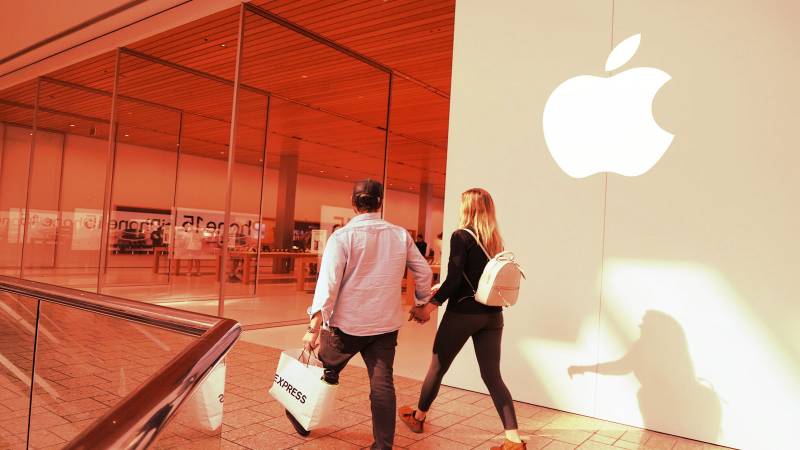
Despite high demand for its iPhones and services like the streaming platform Apple TV+, Apple's revenues have declined.
In comparison to the same period last year, the internet giant reports that revenues fell 1% to $89.5 billion (£73.3 billion) in the three months ending on September 30.
Sales of its iPads and Mac laptops suffered following a spike in demand during the closure.
This quarter's revenues are down year over year for the fourth consecutive quarter.
The company informed investors that earnings had topped $23 billion, mostly due to a three-month period in which iPhone sales set a new high.
It also brought in a record amount for the California-based company, raking in $22.3 billion, up 16% from the previous year, via services like iCloud and Apple Music.
However, it raised worries about possible supply chain problems that would impede the delivery of its new iPhone 15 Pro and Pro Max models.
Tim Cook, the CEO of Apple, stated that the company was "working hard to manufacture more".
"We do believe that later this quarter, we'll reach a supply-demand balance," he stated.
As the company approaches the crucial Christmas sales season, Cook expressed confidence that it had its "strongest line-up of products ever".
However, the most recent report indicated that other Apple products have been losing the interest of customers lately.
For instance, sales of its Mac computers fell to $7.6 billion for the quarter from $11.6 billion the previous year.
During an eagerly anticipated conference in September, the company unveiled its most recent iPhone lineup.
After being compelled to make the modification by the European Union, it was declared that the iPhone 15 would not have its exclusive lightning charging connector. Rather, the "universally accepted standard" is a USB-C cable.
It has had difficulties outside as well, with Chinese customers feeling the effects of economic instability.
